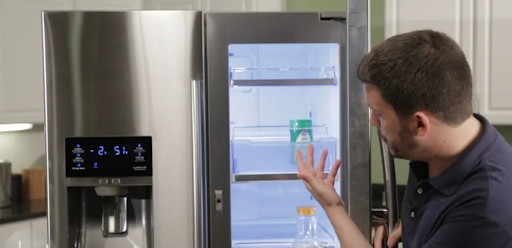Water dispensers are an increasingly popular way to access fresh, cold or hot water in the home, workplace or even public places. Not only are they convenient, but they also offer a great way to save money and time. But with this convenience comes the question of safety. Is drinking from a water dispenser safe? As with anything, it depends on the maintenance and upkeep of the water dispenser. Proper cleaning and maintenance can help ensure the water is safe to consume and free from harmful contaminants. It is also important to use a water filter to remove any harmful bacteria or other contaminants from the water. With the right care, the best fridge water dispensers for clean can be an excellent source of safe, clean drinking water.
Potential risks of drinking from a water dispenser
Water dispensers are often used in large buildings, offices, schools, and other public places where water coolers are more common than faucets. While a water dispenser may be a convenient source of clean water, it is important to know the potential risks that may come with drinking from one.
– Bacteria and mold – Water coolers and dispensers can be breeding grounds for bacteria and mold due to their warm, humid environment.
– Microbial growth – The Environmental Protection Agency (EPA) found that they are 10 times more likely to contain coliform bacteria than drinking water fountains.
– Poor hygiene practices – Water dispensers are often used by a larger number of people than fountains and may be harder to keep clean and free from contamination.
– Contaminated water supply – If the water source is contaminated, it can lead to contaminated water in the dispenser.
– Biological contamination – Water dispensers may not be adequately disinfected between uses.
How to maintain a water dispenser
One of the most important aspects of keeping water dispensers clean and safe to drink from is proper maintenance. This includes cleaning the dispenser regularly and keeping the water source clean.
– Clean the entire dispenser regularly: Inspect the dispenser regularly to look for signs of mold or other microbial growth. Clean the dispenser thoroughly every few weeks.
– Clean the water tank: The water tank should be thoroughly cleaned once every 3 months to prevent microbial growth.
– Change the filters regularly: The water filter should be replaced every few months, or when it becomes clogged, to ensure the water is free from contaminants.
– Replace the water source if necessary: If the water source is contaminated, it can lead to contamination in the water dispenser.
The importance of using a filter
Filters can help ensure the water is free from harmful contaminants, such as bacteria and other microorganisms. This can help ensure safe drinking water from the dispenser.
– Filter the water before it enters the dispenser: This can help prevent contamination from the water source.
– Use a filter designed for water dispensers: These filters are designed to fit in the water lines of water dispensers and can help prevent water quality issues.
– Check the filter regularly and replace it as needed: Regularly checking the filter can help prevent the water from becoming contaminated.
Benefits of drinking from a water dispenser
Water dispensers offer several benefits that make them a great choice for accessing clean water. They are convenient, easy to use, and often available 24/7, making them a great option for anytime access to water. They are also typically less expensive than other water sources, such as bottled water.
– Convenience: Water dispensers are convenient and easy to use. They can be used at any time, and the water is always fresh and clean.
– Cost: Drinking water from a water dispenser is often less expensive than other water sources, such as buying bottled water.
– Health and safety: Water dispensers are generally safe sources of water. They are regularly tested to ensure they meet safety standards.
Signs that a water dispenser may be unsafe to drink from
There are some signs that a water dispenser may not be safe to drink from. This can include a bad odor or taste, clogs or leaks in the lines, and microbial growth. If you experience any of these issues with your water dispenser, it is important to have it checked and repaired right away before it becomes a health hazard.
If you notice a bad odor or taste in the water, or it begins to clog the lines, this can be an indication of microbial growth, such as bacteria. If you notice this or other signs of microbial growth, it is important to have the dispenser serviced and cleaned immediately. If the problem is not addressed, it can quickly become a health hazard for those drinking from the dispenser.



